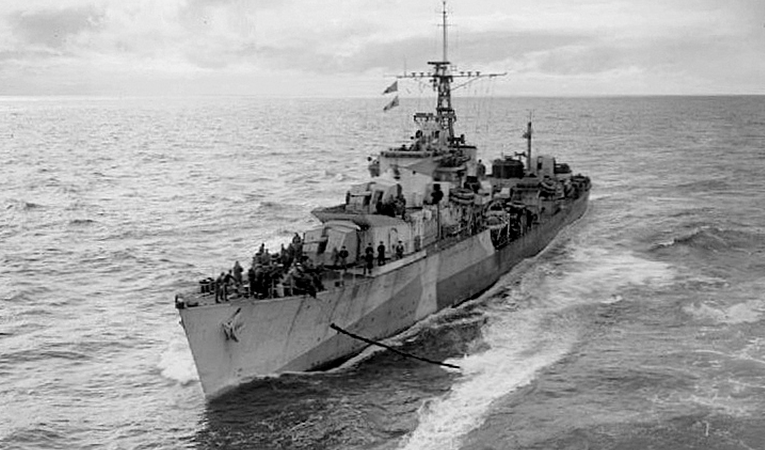3.
SS El Qaher
El
Qaher is Zambezi class British destroyer, 1930 tons and 111 meters long,
launched in 1943, completed in 1944 and subsequently sold to the Egyptian
navy in August 1956. It has been bristled with weapons including four
119mm guns, six anti-aircraft guns, torpedoes and 70 depth charges and
was capable of an impressive 36 knots. It is considered One of the few Red Sea
shipwrecks clearly visible on Google Earth. It has been sunk on the morning of
16 May 1970, Close to the ship's home port of Berenice 110km south of Marsa
Alam.
While
at anchor just off shore it has been suffered from a massive surprise air
assault by Israeli Dassault Mirage aircraft or 12 Israeli F4 Phantoms.
Although it fought back and withstood several attacks, it eventually
succumbed to overwhelming firepower. Its structure ripped open by
cannon fire and missile strikes, and its deck ablaze, its bow ripped open by
the adjacent coral reef as it sunk.
Originally the ship would have had a crew of around 200 but it's not known how
many were on the ship when it was attacked or how many casualties there were.
The depth of its wrecks are above sea surface to 21 meters maximum depth.
The
ship has some old cargo of spent cartridge cases from the anti-aircraft guns
used during the short but desperate fight with the Israeli Mirage aircraft.
They now litter an area of the reef close to the wreck. At least
one and probably numerous 4.5 inch armed shells. There is one still in
the breech of the stern gun. Other unused ordinance lies neatly on the
top of one of the Bofors AA guns. However the RU ammo lockers are
reportedly empty.
Despite the immense damage inflicted by the aerial assault, the wreck is in surprisingly good condition with the bow section still held in place by the ship's anchor. As the bow of the wreck is jammed on a rocky reef, it is possible to swim under the aft section which still remains perched several meters above the seabed. Caught off-guard in the attack, the ship's internal watertight doors are still open and it is possible to swim through large sections of the wreck although as always great care should be taken.
The entire wreck has become a haven for numerous
species of fish and you may well see Jacks, Napoleons, giant Puffer
fish, dense shoals of Silversides and an occasional solitary barracuda.
Also some giant groupers, sponges and soft corals of vibrant colours - some
attached to the ship's giant propellers at 21 meters.












 All
All
 Politics
Politics
 Economy
Economy
 Tourism
Tourism
 Nature
Nature
 Community
Community

